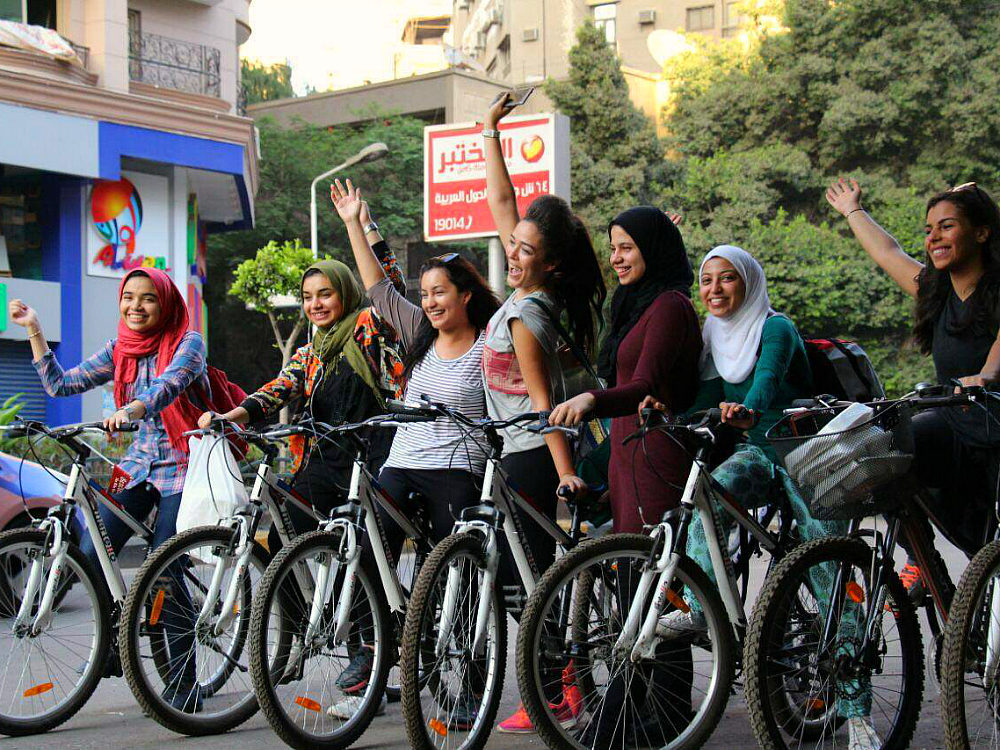Around the world, bicycle sales have skyrocketed as commuters look for ways to avoid public transport and large crowds. After months of confinement, many are also seeking new ways to enjoy the outdoors. The Economist reports an increase of over 100% in bike usage in Switzerland and Philadelphia, US, and a 50% increase in bike sales across the United States as a whole in March.
In Dubai, bike sales and hire continue to grow as lockdown eases with the owner of Revolution Cycles Stewart Howison reporting a 120% increase in bike hire. In Tunis, bike shop owner Mehdi Thameur has recorded a 30% increase in sales since the beginning of the crisis.
Contributing to a cleaner planet
Globally, the decrease in vehicle usage over the past few months has contributed to a fall in pollution levels. In an attempt to make reductions in pollution and car usage permanent, governments across the world are using subsidies and expanding infrastructure to encourage citizens to embrace the bicycle.
In Cairo, pollution has fallen over 30% during the lockdowns with factories closed and traffic drastically reduced. In an attempt to permanently lower traffic levels, the Egyptian government is seeking to expand a bike sharing service launched in February. With the support of the UN Development Program, the Global Environment Facility and the Dutch government, the government hopes to offer all students in Egypt access to the system by 2024.
In Tunisia, the activist group Velorution has used the pandemic to further their calls for improved cycling infrastructure in the capital. The lack of infrastructure is a major barrier to the expansion of cycling with the recent death of group member Radhia Khaled, highlighting the dangers for those who cycle on the road.
On their bikes to break down barriers
More than just a means of transport, in recent years bicycles have become a tool for social change in the MENA too, with women embracing cycling as a way to break down restrictive cultural norms.
In Cairo, the Cairo Cycling Geckos use their bikes to promote women cycling in the city. The organisation was founded by Nouran Salah in 2016, with the aim of organising group cycles for women, primarily in order to avoid harassment and encourage more women to ride. The group now organises two rides per month with the riders combining their mission to normalize female bicycle usage with providing humanitarian assistance to some of the city’s most vulnerable. In Ramadan this year, the group distributed almost 800 food packages to the needy.
Prior to the coronavirus pandemic, cycling as a sport for women was on the rise in the region too. In January this year, Saudi Arabia hosted its first major cycling event for women with over 1000 participants taking part in the three-race series. As the sport continues to grow in popularity, the Saudi Sports for All Federation (SFA) estimates that 30% of cyclists in the country are women.

